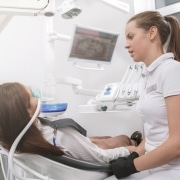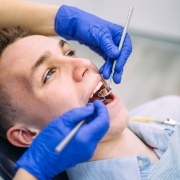“Sedation Dentistry Is Hard on Your Brain” and Other Myths
Some studies indicate that as many as one out of three patients deals with some level of anxiety about going to the dentist. Thankfully, sedation dentistry in Owensboro can make these treatments more comfortable for patients who may not otherwise get the care they need. While sedation dentistry has become a normal part of modern-day dental care, this level of treatment is not immune to some pretty unfair myths.
Myth: Sedation dentistry is hard on your brain.
Sedation dentistry does not have long-term effects on your brain, your memory, or any of your neural processes. This myth stems from the fact that IV sedation is associated with losing memory of what took place, but there is no merit to the idea that the treatment is detrimental to your brain function.
Myth: You can still feel everything while sedated.
When you are sedated via IV, you won’t feel anything at all. However, if you are sedated with oral medications, you do retain your sensitivity. Therefore, if you opt for oral sedation with prescription medication before treatment, the dentist still follows the same protocols. They will use a local anesthetic to the area where work is being done so you don’t feel anything.
Myth: You stay groggy for days after sedation.
After being sedated, whether with IV sedation or oral medication, you may feel groggy for a few hours after treatment. However, most people are back to their fully alert state within a few hours. We do recommend that you arrange for someone to drive you back home from your appointment for this reason.
Find Out About Sedation Dentistry in Owensboro
If you’ve put off dental treatments you know you need because you are anxious about the procedure, sedation dentistry in Owensboro can be a saving grace. Reach out to us at Travis Wilson Family Dentistry to schedule your appointment for treatment with sedation today.



